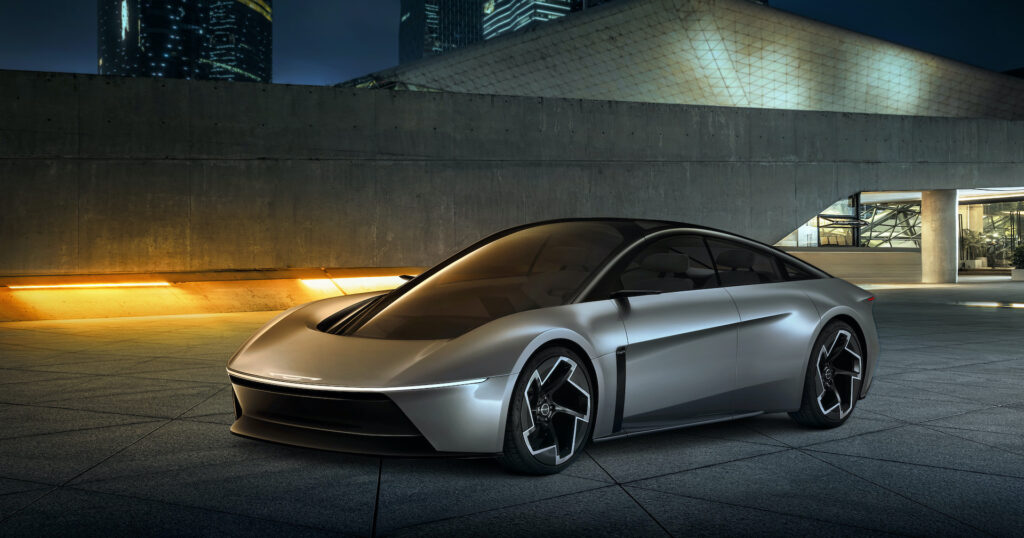Chrysler on Tuesday debuted the gorgeous Halcyon Concept EV in an attempt to redefine the brand as it pivots to electric vehicles.
Unlike the Chrysler Airflow Concept that debuted in 2022 as a near-production-ready electric crossover launching in 2025, the Halcyon Concept four-door coupe won’t ever make production. So what is it, and how does it help a brand that makes more concept cars than models it sells?
“Halcyon represents a period of time of happiness, joy, and serenity,” Chrysler brand CEO Chris Feuell told members of a press briefing at the end of January.
Merriam-Webster is less sanguine. It defines halcyon as “most often used to describe a happy and successful time in the past that is remembered as being better than today.”
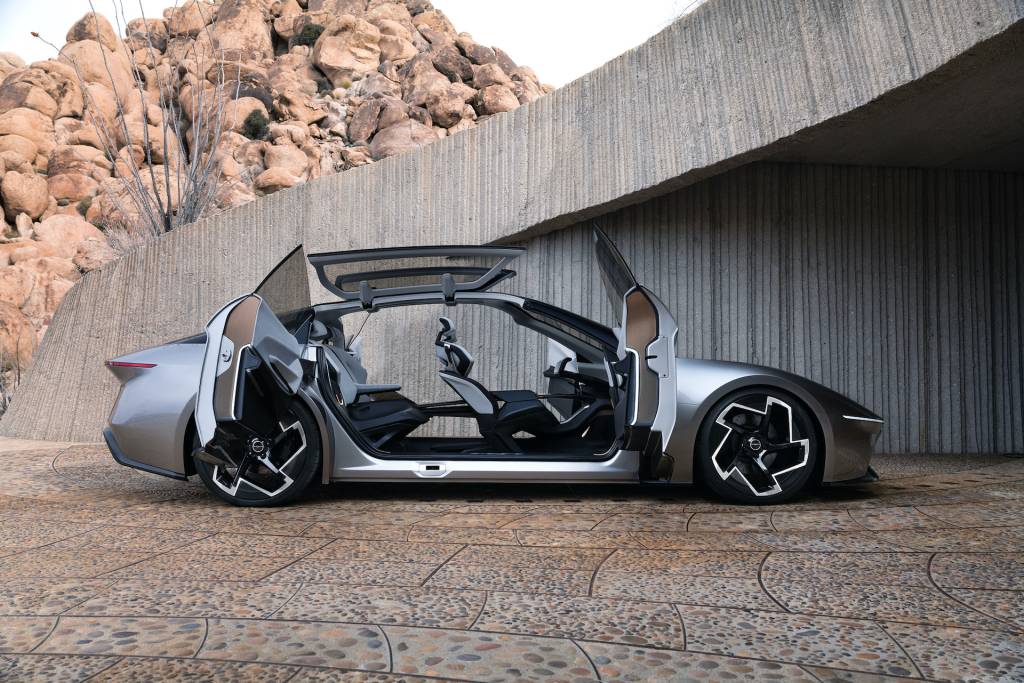
Chrysler Halcyon Concept
Whatever the case, Chrysler is at a crossroads unlike at any other time in its near 100-year history. Short on performance specs but long on promises, the Halcyon Concept reorients the brand to evolve from the discontinued 300C sedan and the lone Chrysler Pacifica by shedding light on everything ranging from a battery electric minivan to 800-volt lithium-sulfur battery packs that allegedly provide up to 200 miles of range in 5 minutes of fast-charging.
Chrysler said the concept incorporates Lyten lithium-sulfur batteries that don’t use cobalt, nickel, or manganese for cathodes, resulting in a 60% lower carbon footprint than other “best-in-class” lithium ion (NMC) batteries currently on the market. Long touted for their density but practically unproven for their life cycle, lithium-sulfur cells such as those made by California-based Lyten remain in a pilot phase.
Another development touted by Chrysler is road-embedded dynamic wireless charging, such as the one parent brand Stellantis has been testing in Italy. Feuell admitted that it takes time, but Chrysler is prioritizing efforts in “certain cities and geographic areas” to deploy it in partnerships with tech companies and governments.
“This is a concept vehicle and it is incorporating technologies that are on the horizon in our long range plans,” Feuell said.
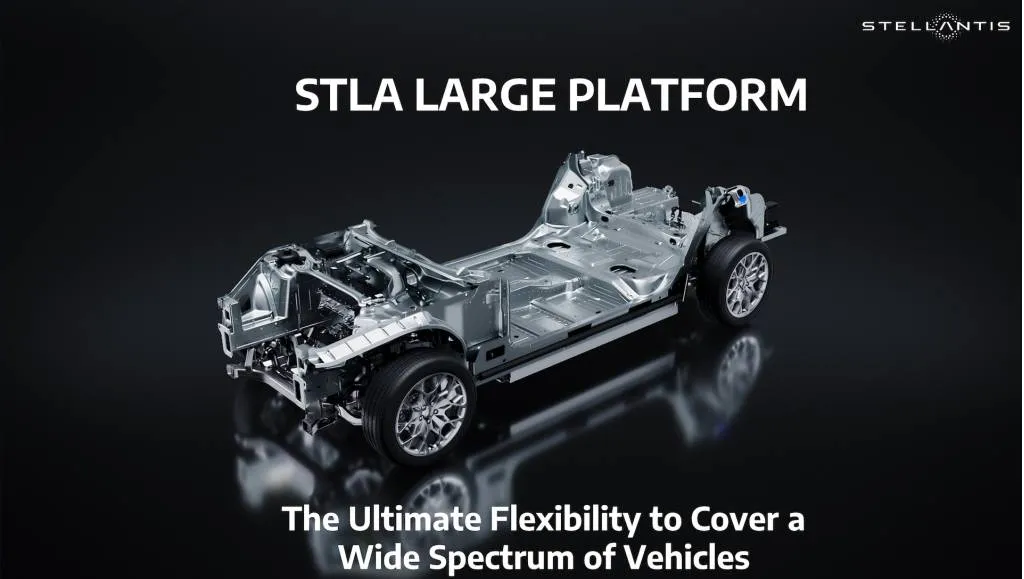
STLA Large platform
In the near term, the Halcyon Concept rides on some concrete Chrysler facts. It uses the STLA Large platform that will underpin eight global models being launched in the next two years. With a length not to exceed 201.8 inches, the forthcoming electric crossovers will be a couple inches shorter than the current Chrysler Pacifica and Jeep Grand Cherokee L three-row vehicles.
There will be 400- and 800-volt versions in STLA Large, but the Halcyon’s propulsion system, and those of the forthcoming vehicles, are limited to conjecture.
The Chrysler brand plans to have an all-electric portfolio by 2028, but the CEO emphasized that there’s some flexibility on the way to that.
“For the time being we’ll have a multi-energy strategy for Chrysler because of the Pacifica PHEV,” Feuell told Green Car Reports. “In future product there’s not an ICE planned. It’s important for Chrysler to have that point of difference with STLA Large if situations change and demand changes.”
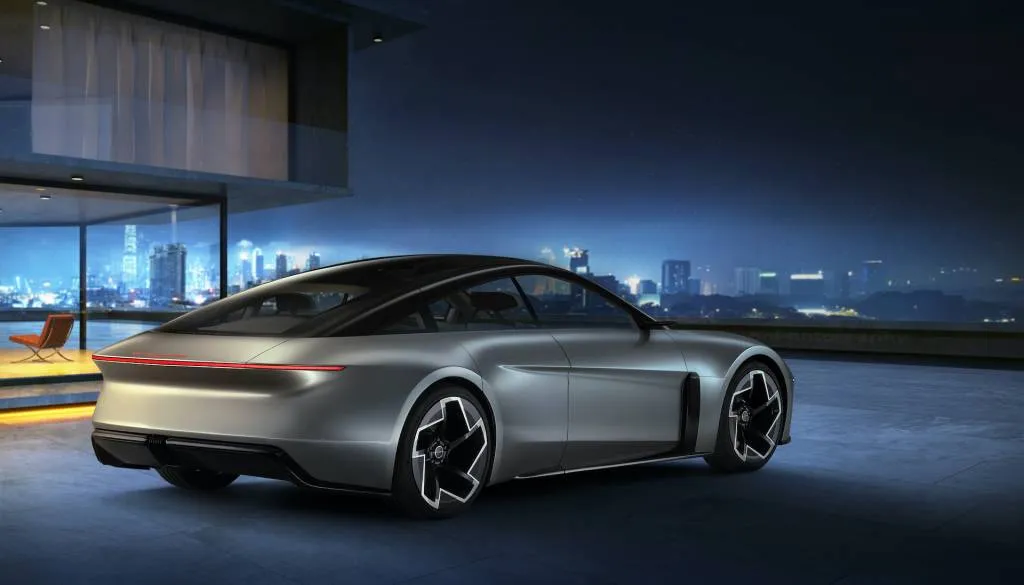
Chrysler Halcyon Concept
Sales of the Pacifica plug-in hybrid have been robust, up 60% in 2023 and accounting for 20% of Pacifica sales. Chrysler targets the plug-in for 34% Pacifica share for 2024.
A Chrysler Pacifica refresh will follow the 2025 electric crossover in Chrysler’s cadence, and another electric vehicle will follow that. An electric minivan seems likely, but it’s a matter of when.
“I did say that we are transforming our portfolio to be full battery electric so it certainly suggests we’re coming out with a BEV minivan,” Feuell said.
Hints can be found in the Halcyon, and not just in the new Chrysler badge made of crushed CDs that will grace the refreshed Pacifica. Relying on a sketch instead of a demo, the rear seat bottoms of the 2+2 Halcyon slide into the hatch so the seat bottoms are flush with the seat backs, opening up the floor space. It’s an interesting alternative than the peerless Stow ‘n Go seats that fold into the floor of the Pacifica. The battery pack in the floor of an electric vehicle would prevent that without some bizarre packaging twist.
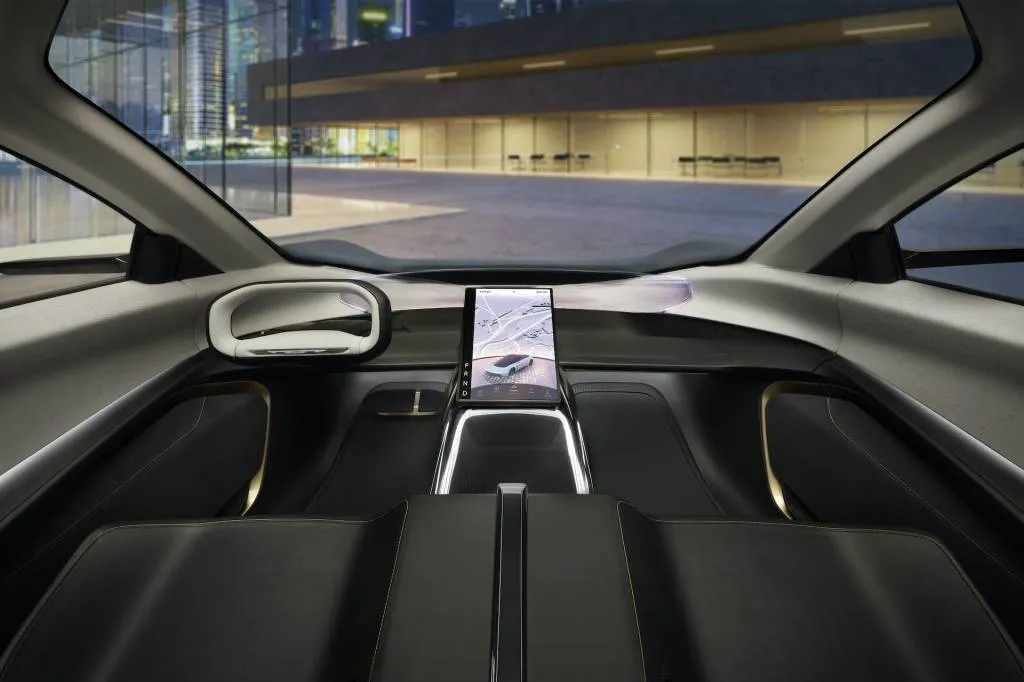
Chrysler Halcyon Concept
The Halcyon borrows from last year’s Chrysler concept in the Synthesis cockpit that integrated the STLA Brain hardware and software for the infotainment system, semi-autonomous drive system, and AI learning for driver preferences. The STLA Brain was manifest on a 15.6-inch retractable touchscreen on the Halcyon, and of all of the concept’s components, it was “pretty market ready,” Chrysler said. It’ll launch first in the 2025 electric crossover, followed by other vehicle North American launches.
Other parts of the Halcyon are more theoretical, including ingress. The long and low sedan sits 4.0 inches off the ground and features single-hinged barn doors that swing open. But to get in the car, a third door, or butterfly window hinged at the roof, must be flipped up to duck your head in. At 5-foot-8, I would have had to recline or chop my head off to close the butterfly and the doors to go.
The glass dome that provides near 360-degree sights accounts for 45% of the vehicle’s interior, and it defines its exterior as well. The front windshield stretches its tongue so far forward it ends past the front axle, and near the bisected front lip of the Halcyon. The lips part to form an air tunnel, or air blade, that lets the air flow around the glass bubble. It’s similar in design to the front wing on the Dodge Charger Daytona SRT Banshee Concept.
Wherever Chrysler is at, the Halcyon proves that the brand is changing and will continue to evolve beyond the 2025 electric crossover.
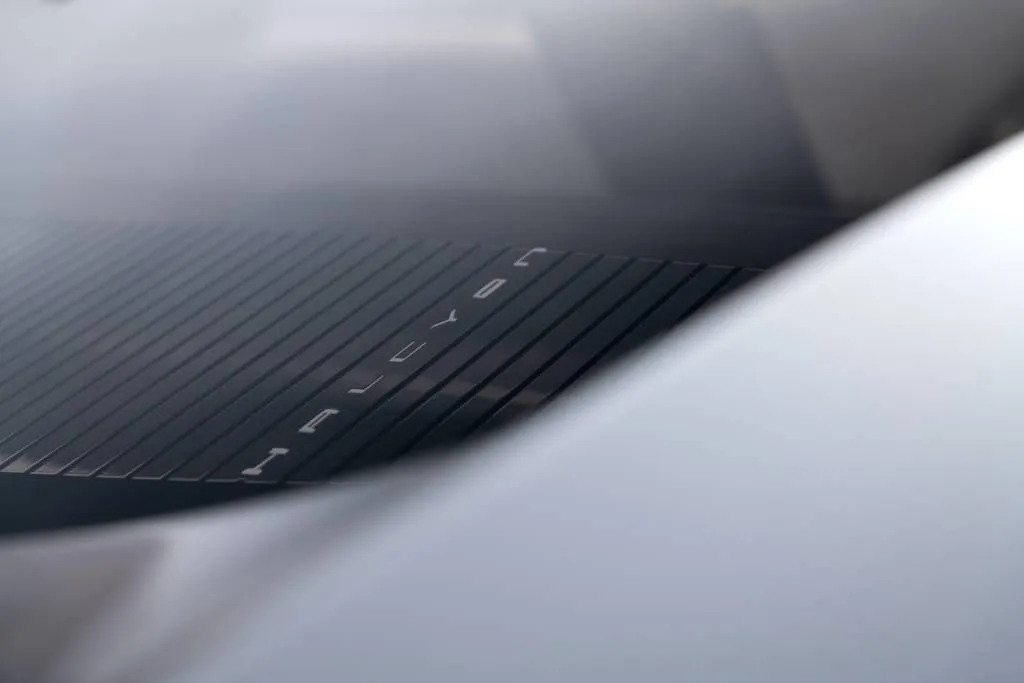
Chrysler Halcyon Concept
“The Airflow Concept was developed before we reframed the brand positioning,” Feuell explained. “It was a good start, but we knew we could push things a little edgier, a little more tech forward, and I think what we you see here with the Halcyon Concept represents the future design direction of the brand.”
Proving Chrysler is more than just a minivan, the concept subverts the Halcyon days of Chrysler into something ahead, not behind.

